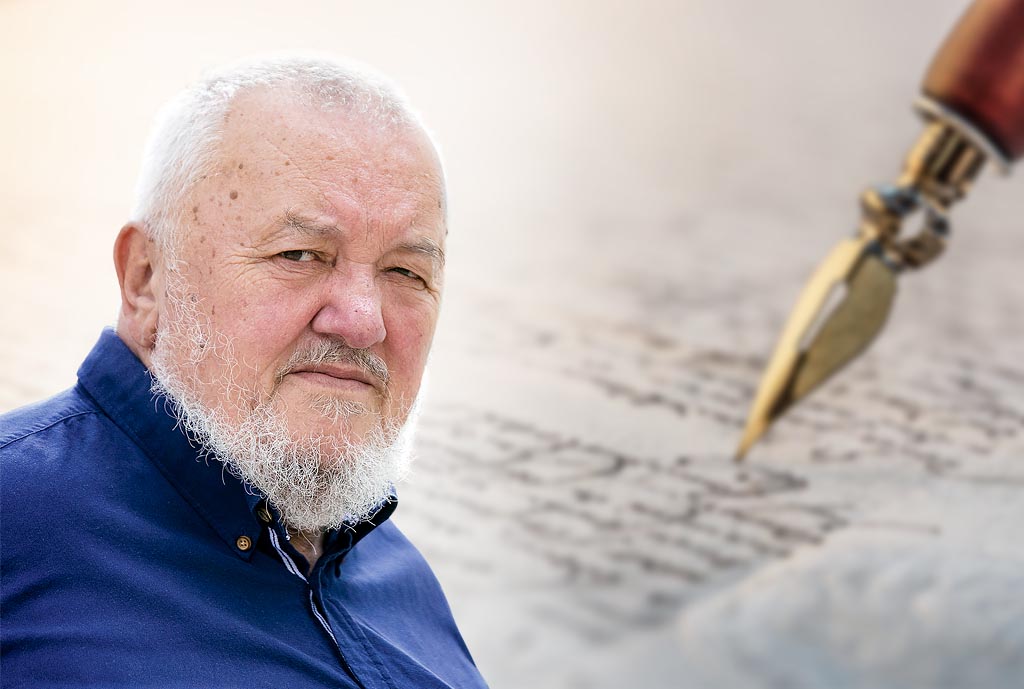By: Dr. Stane Granda
Natural disasters do not only impact the environment, but at least as much or even more, the people who inhabit it. Their reactions vary widely, and the consequences of surviving a catastrophe are long-lasting. Just as they affect the material aspect, they also impact the psyche and societal awareness.
Many consider the recent natural disaster that struck Slovenia to be the largest in our history. Although we lack a systematic study on them, signing off on this claim would be difficult. Typically, a disaster is defined by the number of casualties, as lives are irreplaceable, not material damage. Let’s recall the year 1348 when a part of Mount Dobrač collapsed into the Gail Valley due to an earthquake, burying numerous villages. Think of the years when locusts ravaged nature and people, or when the plague decimated populations. Remember the earthquake of 1511, which particularly affected the western part of Slovenia, and the frequent tremors in the Upper Soča Valley. The changing course of the Sava River speaks of horrendous floods. Since ancient times, we have been aware of the catastrophic consequences that the Savinja River brings every few years. In the mid-19th century, a thermal spring in Laško was buried by debris to the point where it remained undiscovered for some time. Let’s be honest and based on certain cases, like the development in the Železniki area, admit that the consequences would have been much smaller if we had systematically cared for torrents, embankments, built the dry retention reservoirs planned a hundred times over, maintained properly stacked timber, cleared sediment behind dams… After the hailstorm, it is too late to ring the bell. Looking for the culprit is even less productive! Will we learn anything from this? Will anyone compare the fate of old and new parts of settlements?”
In the initial responses of the political sphere to the storm that plunged Slovenia into darkness and brought it back into certain European media that had almost forgotten about it, the inadequacy of those civil society movements that established the current government became evident. They fell silent. Shouting about climate change, which is mere imitation of foreign patterns and not rooted in Slovenian reality, cannot offer concrete help. Kučan, who knows that his supporters are driven solely by their selfish political interests – elections clearly indicate that people are not falling for the left’s rhetoric, used to mask their sole goals of seizing, and abusing power – got scared of this and warned that the “state of solidarity, cooperation, inclusion, and mutual assistance” must come to the forefront. Even though he attributed the neglect of this to the opposition, he effectively issued a warning to his own side, which was starting to lose public support. We are referring to the current ruling new faces, who on one hand acknowledge the helplessness of the totalitarian left, which cannot directly ascend to power, and on the other hand, manipulate democracy and the principles Kučan proclaims. He acknowledged an old truth, that politics is primarily about addressing social distress and issues, not a struggle for power, a domain his followers exclusively master.
The incredible solidarity, prevailing emotions, and active evidence of co-responsibility and interdependence, mutual assistance demonstrated by Slovenian citizens, is something remarkable. Even foreigners do not hide their admiration and enthusiasm for them. Despite everything we are experiencing, there is something healthy within our people. Let’s acknowledge that. This stands in stark contrast to accusations that parliamentary elections, especially the recent ones, prove their immaturity, if not worse. If they demonstrated the same in 1990 and 1991 and most recently again, it might be worth looking for the incapacity to attract noble individuals into politics, not among the citizens! Slovenes gained independence to live in line with their democratic tradition and comparable to Europe. Hence, politics derived from this premise has “benefactors” as natural allies; it just needs to address them properly.
The turning point that Slovenians experienced during the time of the Slovenian Spring is a significant, profound, and far-reaching matter. We expected a spontaneous democratic development and social progress. This occurred, but in the eyes of the people, it was more due to general circumstances rather than the post-independence situation. The values and benefits that creators of new faces systematically negate. They have inserted a special secretary into the current government for this purpose. There is no civic education. National consciousness is being systematically undermined from the Slovenian Academy of Sciences and Arts downward. In many aspects, after 30 years of the Slovenian state, it is worse. Not because of fatigue from our own history and the depth of changes that global development, to which we are exposed as a democratic community, accelerates, but because nobody cares about the social and political upbringing of citizens. The school system remains entirely under the control of old ideological forces. This is skilfully masked by responsiveness to technological advancements and foreign language knowledge. The spiritual climate, which also encompasses national and civic consciousness, is becoming increasingly barren and empty. Worse yet, they are imposing issues of coexistence with minority and peculiar viewpoints, which have always existed but were not central and predominant. The majority must tolerate them, as they are people like us, but for that reason, our majority views are not something to be discarded, shameful, or intolerant. We have discarded Lenin along with civilised Europe, let’s leave Trump to the Americans. Let’s return to a time suitable for following Krek, Gosar, and even the fathers of the United Europe, of which we are the ideological and genetic part.
The resolution of the crisis caused by nature must, in order to prevent its recurrence in a few years, make society more responsible. The opposition has an exceptional opportunity to demonstrate itself and permanently nullify the chances of “new faces” governments emerging.

